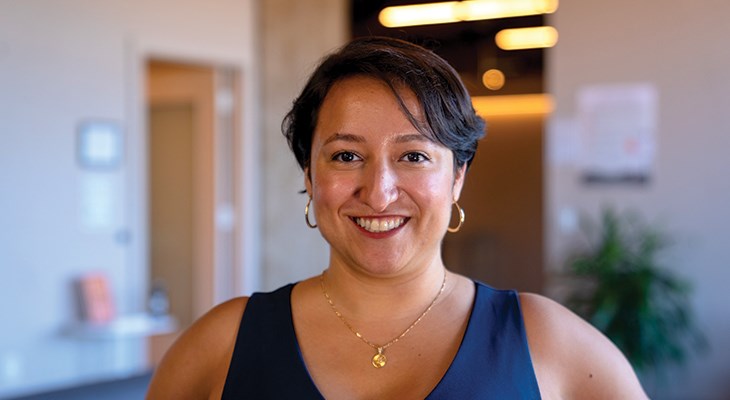Ascender Executive Director Nadyli Nuñez has shepherded hundreds of early-stage entrepreneurs through its incubator, co-working programs, and numerous early-stage investments. Graduates are positioned for add-on capital as part of their growth journey from scale-up to the middle market. In total, Nuñez has positively impacted more than 600 founders and small business owners.
Before Nuñez and her staff can work their magic, however, they must vet each endeavor to see if real growth opportunities exist.
“We run them through a two-step application process,” Nuñez says. “First, is the general written application and from that pool we bring on about 20 to participate in an intensive five-day bootcamp. There they learn about business planning, pricing, value proposition, and more. This experience has two missions, first is to educate more companies than we are able to incubate and, second, it is to see the coachability of the companies and learn more about their solution beyond the written page.”
Listen to the podcast
Ascender also helps companies within its cohort and its coworking membership find investments and different types of funding—as venture capital or government grants.
“Our scope of entrepreneurs goes beyond tech companies,” Nuñez says. “We cast a wide net for what company we work with and consider more its product-market fit, our ability to help them reach the next milestone, feasibility for this company to scale to a self-sustaining venture and the commitment of the team.”
Nuñez believes there isn't one “best approach” for making things work because a company’s success relies on the sum of its parts.
“Anyone will tell you it is product-market fit, the relevant expertise of the team, and the business model,” she says. “They say first-time founders focus on product development and serial entrepreneurs focus on the go-to-market plan. Founders may spend lots of money on perfecting the MVP without considering the business feasibility of what they are building.”
When it comes to investment, Nuñez says venture capital is an obvious route. But it’s not the only one.
“Early adopters might provide revenue to build your company. Government grants and other economic development support are popping up in cities now more than in our recent history,” she says. “Figure out what makes sense for you at this time.”
Another important part of ensuring success with any startup is to find mentors with varying perspectives, which ensures you see multiple views of what’s possible before choosing what is best for the company.
A major part of Ascenders’ verification process is the bootcamp, which enables Nuñez and her staff to vet candidates. COVID threw a wrench into the process.
“Oh my gosh, I mean, first of all bootcamp is one of my favorite parts of what I do and what we do at Ascender, but we had to change it to virtual,” she says. “And what does that look like when bootcamps are, like, long, long days and you don't want to be on Zoom for that long. So, what we ended up doing was actually something that we decided to keep for this year.”
Her team created modules for entrepreneurs to go through, which are pre-recorded videos that people can watch at their leisure in advance of the bootcamp.
“So, when they came in for the actual bootcamp, it was more on a workshop basis where we’ll spend 10 minutes recapping the lecture, but then the rest of it is actually having their homework peer-reviewed,” Nuñez says.]
The approach is working. Nuñez points to hundreds of success stories; however, it’s the people who don’t see success that pulls at her heart, having to have that conversation with them that nobody wants to hear.
‘It's so hard because it's their baby,” she says. “It's their baby and what we try to do is think about the facts and say, ‘What do you need revenue to be able to pay yourself? What's the goal? What does that mean in terms of sales? How many units you need to sell? What does that mean on a quarterly basis? What does that mean on a monthly basis? And where are you right now?’”
Once the numbers are calculated and presented to them, it’s easier to understand, Nuñez says.
“It’s difficult to see the disappointment in their face and the answer is to say, listen, sometimes this is like jewelry, you know, people who make jewelry or clothing or retail say: ‘If this is something that is passionate for you, you could still do it. But, no, this is not going to become a full-time business.’”




